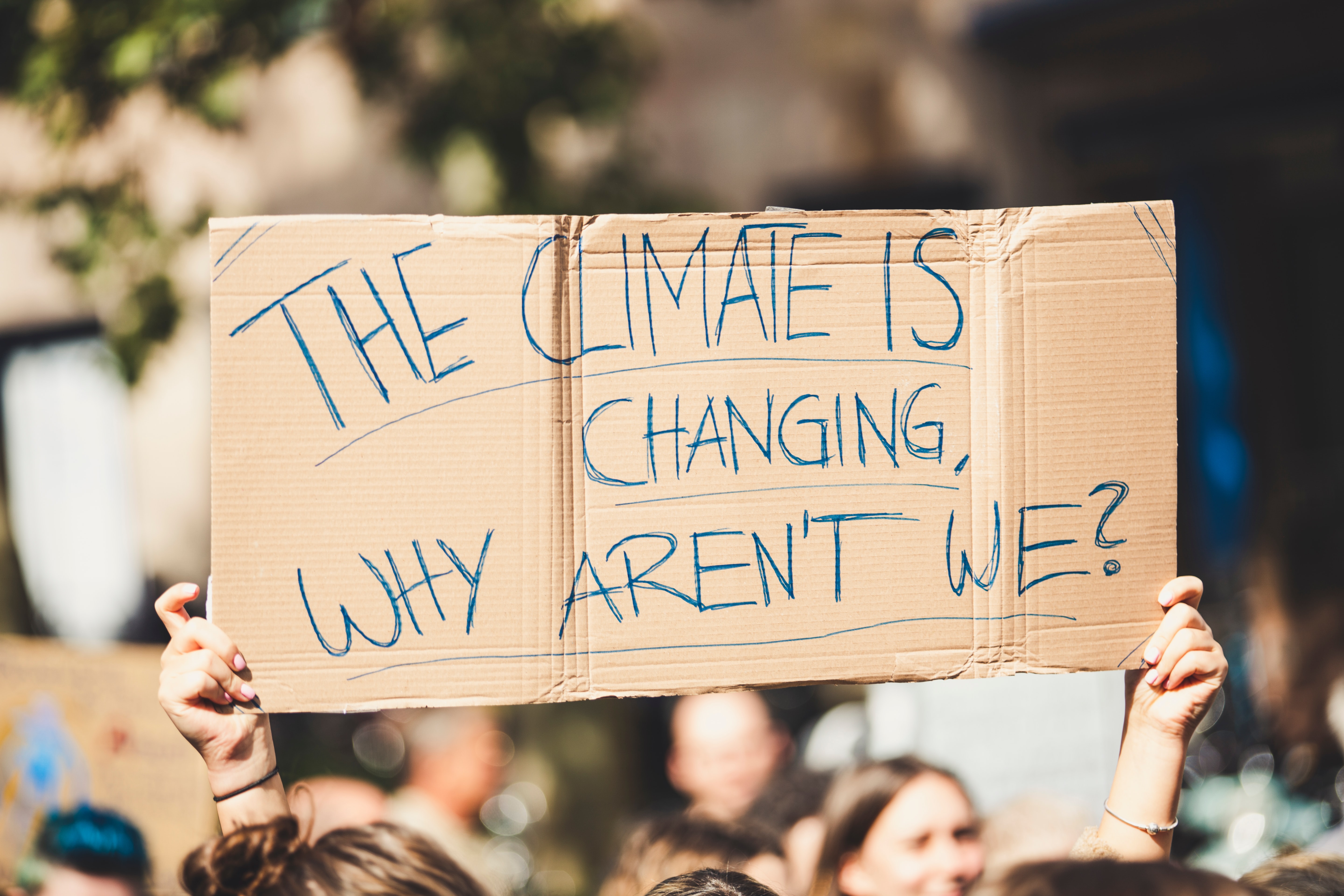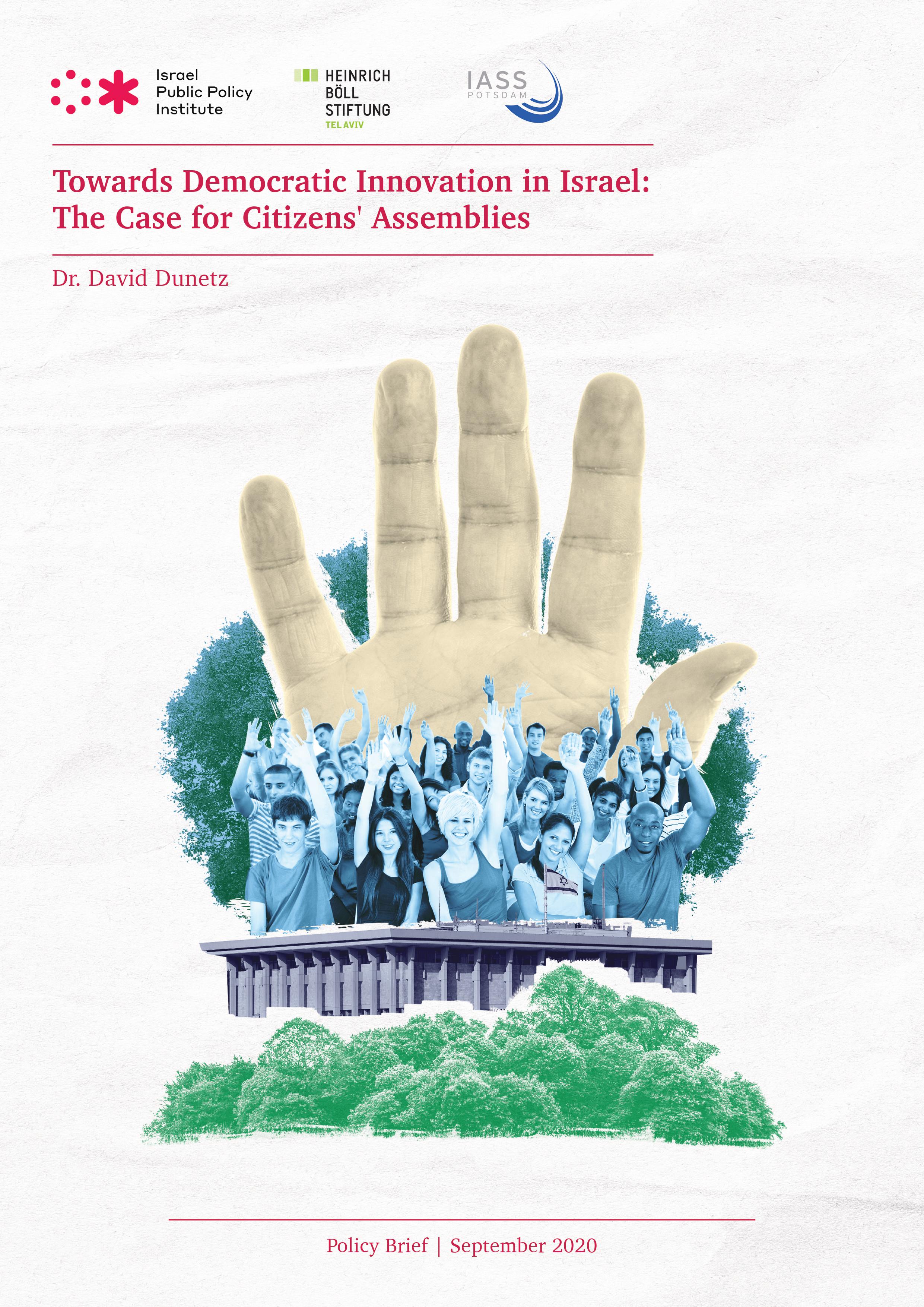Towards Democratic Innovation in Israel: The Case for Citizens' Assemblies

Share this Post
Citizens’ Assemblies as Instigators for Climate Action
The erosion of liberal democracies is arguably a sign of our times. Autocratic politics, surveillance, and extremist ultranationalist populist tropes have gained ground in many countries around the world. So, too, has the urgency of the crisis of climate change become a defining feature of this era, requiring bold action to avert ecological and social disaster.
If we are to draw any lessons from the current coronavirus pandemic, one most certainly must be how it has exposed modern nation states’ vulnerabilities and their general incapacity to plan for and grapple adequately with the complex “wicked problems” and escalated change in an interdependent global world. Crises on the scale of climate change are bound to be far more devastating than anything we have known. Can democracies, so grounded in the short term and so beholden to vested interests, tackle the immense, long-term challenges required to decarbonize economies and shift to sustainable societies?
The following paper posits not only that democracies can, but also that they must experiment and re-invigorate themselves to meet the challenges ahead. It presents the case for participatory innovative practices as an important pathway for democratic renewal and for bolder and more ambitious climate action in Israel. Specifically, we focus on one deliberative democratic format, the Citizens’ Assembly, that has gained in popularity around the world of late, especially around climate-related issues.
This policy paper outlines suggestions for convening citizens’ assemblies and identifies a pathway forward for Israeli society:
Phase 1: Initiating and engaging potential stakeholders to craft an ecosystem that buys into the idea and is oriented towards the common goal of creating a Citizens’ Assembly to leverage democratic innovation in Israel.
Phase 2: Formalizing mechanisms of a collaborative ecosystem to create the best forms of organizational/institutional structures and communication mechanisms that will allow learning and implementation to be sustained into the future.
Phase 3: Implementing the first Citizens’ Assembly of 100 randomly selected participants and run by either the backbone organization or an independent non-partisan body.
Phase 4: Further development, replication and institutionalization is necessary to bring the learning and insights, from the implementation stage, into a sustained structure which includes a budget and a framework to engage stakeholders at various levels.
————————————————————————————————————————————————–
The Israel Public Policy Institute (IPPI) serves as a platform for exchange of ideas, knowledge and research among policy experts, researchers, and scholars. The opinions expressed in the publications on the IPPI website are solely that of the authors and do not necessarily reflect the views of IPPI.
Download Full Publication
Policy Paper - Towards Democratic Innovation in Israel: The Case for Citizens' Assemblies by Dr. David Dunetz

Share this Post

What are Green Jobs?
In recent years, the concept of green jobs has gained significant traction as a vital component of the…

Should We Be Concerned About Misinformation On Clubhouse?
While most were stuck in a particularly gruesome mid-winter Covid lockdown at the beginning of 2021, there was…

"Disinformation is not just any piece of “fake news” – It's the deliberate dissemination of false or misleading information"
Disinfo Talks is an interview series with experts that tackle the challenge of disinformation through different prisms. Our talks…
